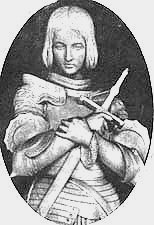Constance: the Depression and the War
Has the oral tradition of passing on family history, talking about one's personal history of family stopped? Maybe it was the national trauma of the Depression that made it so difficult for families to share stories like this, I don't know. Maybe it's just mine that is this way.
This is the only time that the story I'm telling has ever been told. Within the context of my family, this story is so loaded with shame that I am the first to ever wrap words around it. But here it is, my story. My mother's, really.
The Depression was horrible everywhere. But it achieved a uniquely hellish quality in the Great Plains, the dustbowl that gave Steinbeck his Grapes of Wrath. From the very few stories passed on to me by my mother, I often thought that her family had lived that story of poverty, futility and desperation. And in later years, my mother would make bitter reference to her family as the Joads.
As is true with soldiers who experienced difficult things, my mother didn't like talking about it. There was no comfortable sharing of homey anecdotes about her family during those years. Just occasional terse descriptions of what it was like to have both parents gone, working far away, to be responsible at age 12 for three children younger than you, many times staying alone on a farm where the nearest neighbors -- my great-grandparents -- were more than a mile away.
I will never forget one of her stories, about how dark and silent the nights were on that farm. No electricity. No phone. And how much she hated the sound of the owls in the barn, how lonely that sound was.This was a time that germinated seeds of my mother's, Constance, intense dislike for her own mother, Edythe Eloise.
In the '30s, since my grandfather couldn't make his own land profitable, he had gone north to Nebraska as a laborer, trying to make what money he could in an attempt to save the family farm. He was gone six months at a time for more than five years.
In the late 30's, early 40's, the war began to stir the economy and my grandmother was able to find work, initially as a clerk, and then later as a factory worker (a Rosie the Riveter) near a Kansas military installation. Apparently the work was far enough away that she again needed to leave the farm and live near the work.
This whole period of family history is shrouded in silence.
I somewhat understand why my mother was left alone -- but she was so young. Maybe my grandmother thought she would be all right with the grandparents a mile away. But still.
It seemed my paternal great-grandmother, who had shouldered the child care responsibilities for some time, was now attempting to force my grandmother to accept more responsibility for her own children. But my grandmother didn't pick up that burden, my mother did.
I am so sad when I think about the fear, the abandonment my mother must have felt, and the heavy weight of that responsibility. It irrevocably marked her, freezing something deep inside her. Too much responsibility too soon and a desolate sense of being left behind by those who were supposed to have cared for her.
The only other anecdote I have from that time is an episode in which one of my uncles apparently jumped from the hayloft, piercing his foot through with a pitchfork he hadn't seen from where he jumped. Blood everywhere. My 10 year old aunt sent to fetch the great-grandparents. Mother binding his foot as well as she could. At age 12.
And then my grandmother became pregnant with her fifth child.
Apparently my grandparents' already weak marriage truly fell apart about the time of the birth of a son that could not have been my grandfather's. Although he would share their last name, this poor uncle clearly looked like none of his siblings and generally stood apart from the first four children.
Grandmother finally assumed a maternal role with this child, perhaps because no one else in the family would. I sense there was now outright disdain for her from my paternal great grandmother, the tiny, formidable woman who had never wanted her son involved with this woman to begin with. Great-grandmother would own the first four and help, if begrudgingly, but not this latest literally ill-gotten child.
The tangible evidence of my grandmother's "free spirit" was enough to cause a huge divide and a lot of strife in what could never have been called a happy family to begin with.
Grandfather came home, having managed to help save the family farm. I have vivid fantasies of what his discussions with my grandmother must have been like. He had known she was the proverbial wild hare ... but there must have been a sense of betrayal, similar to that felt by my mother, when he realized just how wild she'd been. And yet, he stayed a while longer. Out of inertia or out of love, I don't know.
The war started, there was again a market for what the farm could produce, and what passed for domestic calm descended over the badly broken family. The kids went to school -- and did well, astonishingly (my aunt became an industrial psychologist, one uncle a civil engineer, another uncle a college professor).
My mother was the only one to not continue on to college. She had graduated from high school at 16 and began a civil service job, oddly mirroring my grandmother's behavior in her desire to get as far away from her family as fast as she could.
And my grandmother still had some life to live. She wasn't done yet.
(to be continued)


